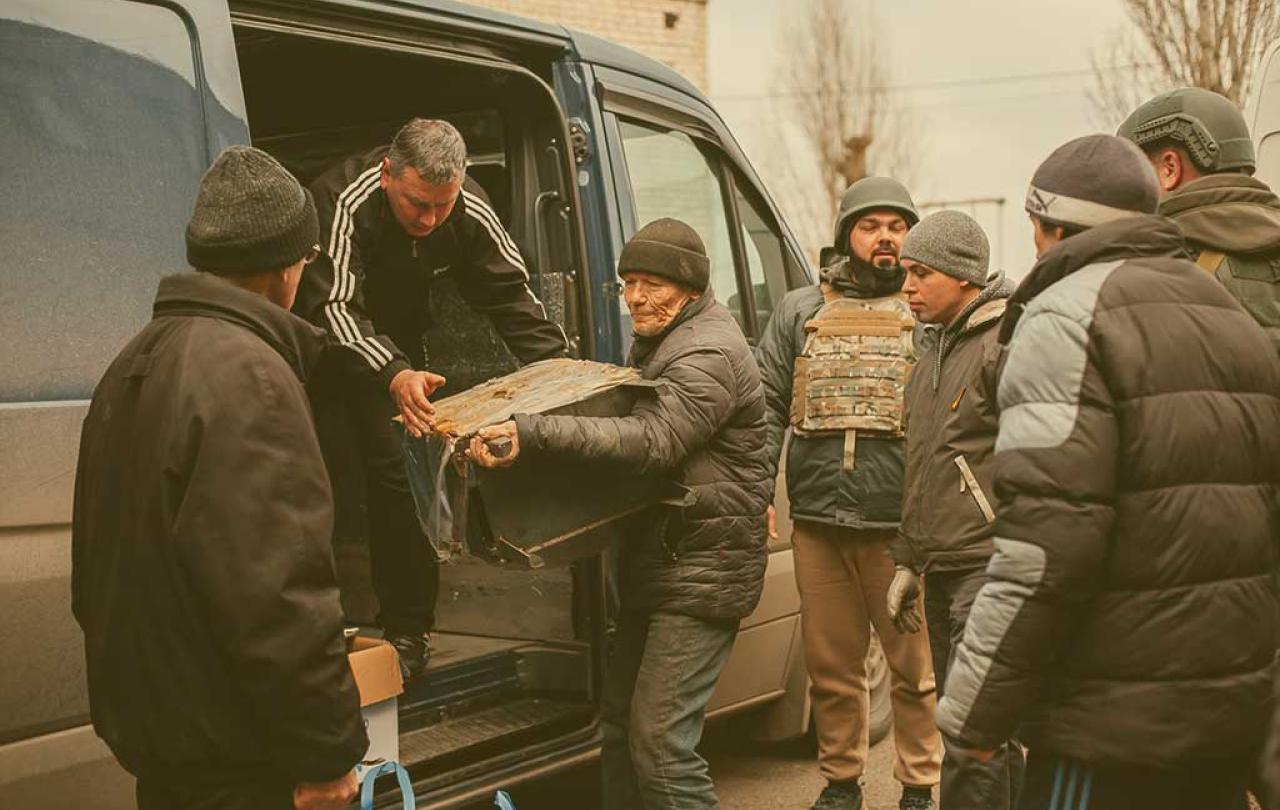During the last few months of the United Kingdom’s 200 year rule in India, the British Government in London wanted to establish its last legacy on a majority Hindu land. Britain had shaped the Indian Subcontinent not only through the establishment of democratic institutions, free press, nationwide infrastructure, a robust stock market and so on but with radical social reforms that brought well-needed equality, dignity and fairness at every level across The Raj’s 300 million citizens. This seminal legacy was the sanctity of the Christian marriage. One husband, one wife. However, it was not the colonial administrators who delivered the legacy, but Indian campaigners, reformers and lawyers. This is their story.
The idea of one husband, one wife was cautiously presented to the lawyer turned activist Mohandas Gandhi in 1946 which the Mahatma turned down vehemently and bluntly told the British not to interfere in this area. The British were always careful when suggesting social and cultural change and so they recoiled without any further pressure. But this attitude surprised many as Gandhi was significantly influenced by the Christian faith to the point where he not only believed that the Sermon on the Mount was a profound spiritual document but the greatest political document of all time.
Heroes and husbands
It was seen as a sign of power and status to have more than one wife in Indian society and likewise for a woman to have many husbands was a sign of strength and not submission. This wasn’t at the princely or aristocratic level alone but the merchant caste and village leaders as well. Why? It was a practice that followed in the footsteps of two powerful incarnations of God in the Hindu world. Ram and Krishna.
There are two great epics in Hindu culture which are etched into the minds of most of the one billion Hindus across the globe.
The first being the Ramayana scripture which was written across a span of 400 years between 200 BC and 200 AD. In this popular story (inspired by the Iliad) the incarnation of the Supreme Brahman is Lord Rama. He incarnates as a righteous king and is married to Sita and defeats the evil king Ravana (which is the central theme of celebration for Hindus during Diwali).There are approximately 300 versions of the Ramayana and some state that this much admired king had 8,000 wives including Sita.
The other great epic is the Mahabharata scripture which was written over a period of 800 years between 400 BC and 400 AD (which inspired the Latin poem Aeneid by Virgil). The Mahabharata contains two very important aspects of Hindu culture. The first is the Bhagvad Gita scripture within its battle riddled story (which the father of the atomic bomb J.R Oppenheimer quotes after seeing the impact of the bomb, “I am become death destroyer of the worlds...”) and the other is the most prominent and pivotal incarnation of the Supreme Brahman in the Hindu world whose name is Krishna. Krishna had 16,108 wives. Draupadi is a strong and feisty woman in the same story who has five husbands.
The influence starts
So where does the battle for the Christian marriage in the Indian story begin? With 19th century social reformers.
Ishwar Chandra Vidya Sagar was born into an Orthodox Hindu family in Bengal (Eastern India). He was raised as a devout orthodox Hindu but was later in life influenced by the eminent organisation, Brahmo Samaj. Much of the way in which Hindus practice their faith today both individually and as a community is largely due to the influence of the Brahmo Samaj in the 18th and 19th century. It was established by another famous Bengali, Raja Ram Mohun Roy who is known today as ‘The Father of the Indian Renaissance.' Roy believed firmly in his heart that in order to transform Indian society one needs to transform Hinduism, and to transform Hinduism for the better one needs Christian doctrine and practices at the heart of the Hindu framework. He campaigned against Sati (the burning of a widow on the funeral pyre of her husband) and fought for women’s rights in general. The Christian idea that all were made in the image of God (and equal) was engraved deeply into his worldview.
Ishwar Chandra saw from Roy’s perspective the need and power in emancipating women in Indian society. He began to pushback and campaign against deeply entrenched Hindu customs which wasn’t easy. After great efforts his vigorous campaign to allow widows to remarry was signed into law (The Hindu Widow’s Remarriage Act, 1856).
But pushing into law the Christian sanctity of monogamy was far beyond his reach.
It was the ardent social reformer and critic of the Christian faith Keshub Chandra Sen who would later get the ball rolling in a significant way. Born in Bengal to a devout Hindu family as well.
Keshub publicly criticised the Christian faith in his early years until he came across a book written by the French diplomat and political scientist Alexis de Tocqueville. Alexis had spent some time in America studying American democracy and his work, Democracy in America was published in 1835. Towards the end of the second volume Tocqueville states that the growth and strength of America’s democracy stems largely from the sanctity of the Christian marriage.
Reading this powerful argument transformed the understanding of Christianity for Keshub Chandra Sen. It was also a popular question amongst Indian social and political reformers of the time as to why and how a tiny island and a few thousand British civil servants managed such a vast subcontinent. “What is their spiritual gift?” was the running question and Keshub realised it was the nature of a family based on Christian beliefs.
He followed in the footsteps of Roy and as one of the most influential thinkers of his time campaigned to introduce Christian doctrine and ideas into Hinduism. After all his painful efforts he managed to pass the Special Marriage Act in 1869 for those who were members of the reformed Hindu organisation Brahmo Samaj but failed to introduce it into law across the wider Hindu population due to immense push back from the Orthodox high caste Hindu Brahmins.
But this idea of a Christian marriage and the strength it can bring to a society stayed very much alive in the Indian intelligentsia for years.
A constitutional approach falters
It was the brilliant economist, social reformer and political leader, Bhimrao Ramji Ambedkar who finally took one husband, one wife across the finishing line.
Ambedkar studied at the London School of Economics (where a bust of him can still be seen in the Atrium of the Old Building). With his incredibly well-furnished mind he knew the pitfalls of Hinduism when it came to democracy. He believed they were not compatible due to the unfair and rigid caste system and so, later on, when as a lawyer, Ambedkar was assigned the crafting of the Indian constitution he ensured it was embedded with Christian principles of equality.
It was during this time in the 1940s that Bhimrao came across the masterful work of Joseph Unwin Sex and Culture which reveals the importance of sexual restraint and its profound impact on society. Unwin’s work made an impression on Ambedkar and revealed to him the weakening hole within the Indian marriage.
Ambedkar was in tune with the likes of Keshub Chandra Sen whilst equally unraveling the flaws of Gandhian politics and economics using his razor sharp intellect . Although he took Buddhism as his faith he introduced the Christian idea of marriage to India’s first Prime Minister Pandit Jawaharlal Nehru in 1948 whilst drafting the final articles of the Indian constitution. He told Nehru that it was vital to put into law the idea of one husband and one wife. Again, the Constituent Assembly rejected the idea without a second thought. So, Nehru told Ambedkar to leave the idea for a while and get the constitution passed as it was. Then, after the new Indian government was formed they could bring the idea back to the cabinet. This battle took a very long time…
Tenacity triumphs
In 1952 the ruling party of the newly formed India, along with India’s first President Dr. Rajendra Prasad, tore the proposal apart once again. Nehru threatened to resign if the party did not pass the Christian idea of marriage but the cabinet called his bluff. Nehru knew that even if his party passed the law the President would not sign on it and so he gave up all hope. Ambedkar by now was furious and fed up with his friends and so he applied his brilliant mind and tenacity to writing articles in the Indian press attacking the ruling party and his friend the Prime Minister - with incredible style, substance and affect.
Ambedkar had a significant amount of social and political clout across the aisle, and with the general public, so eventually after years of pushing, pressing and penning his arguments the Hindu Marriage Act was passed in 1955. At last, the biblical idea of one husband and one wife came into law after a battle that took over 100 years.
Growing up in England and that in an Orthodox Hindu family I often heard my parents complain about the divorce rates in western societies. Divorce is not condoned in any Hindu scripture as per my reading over 20 years as a Hindu monk and yet the sanctity of marriage in Hindu communities in the west is still fairly strong in comparison to most other communities. It’s helpful to remember the roots of that strength.






